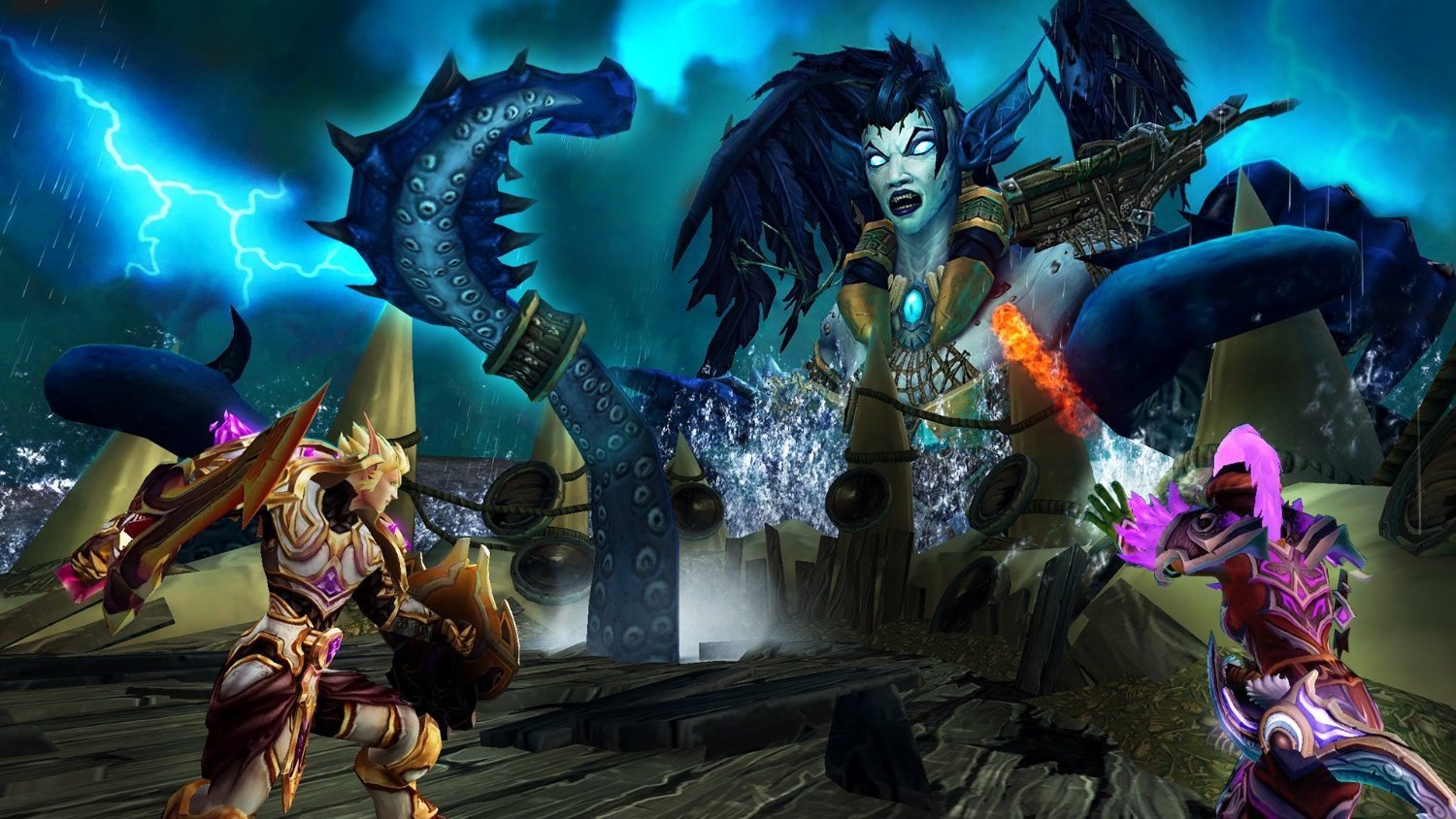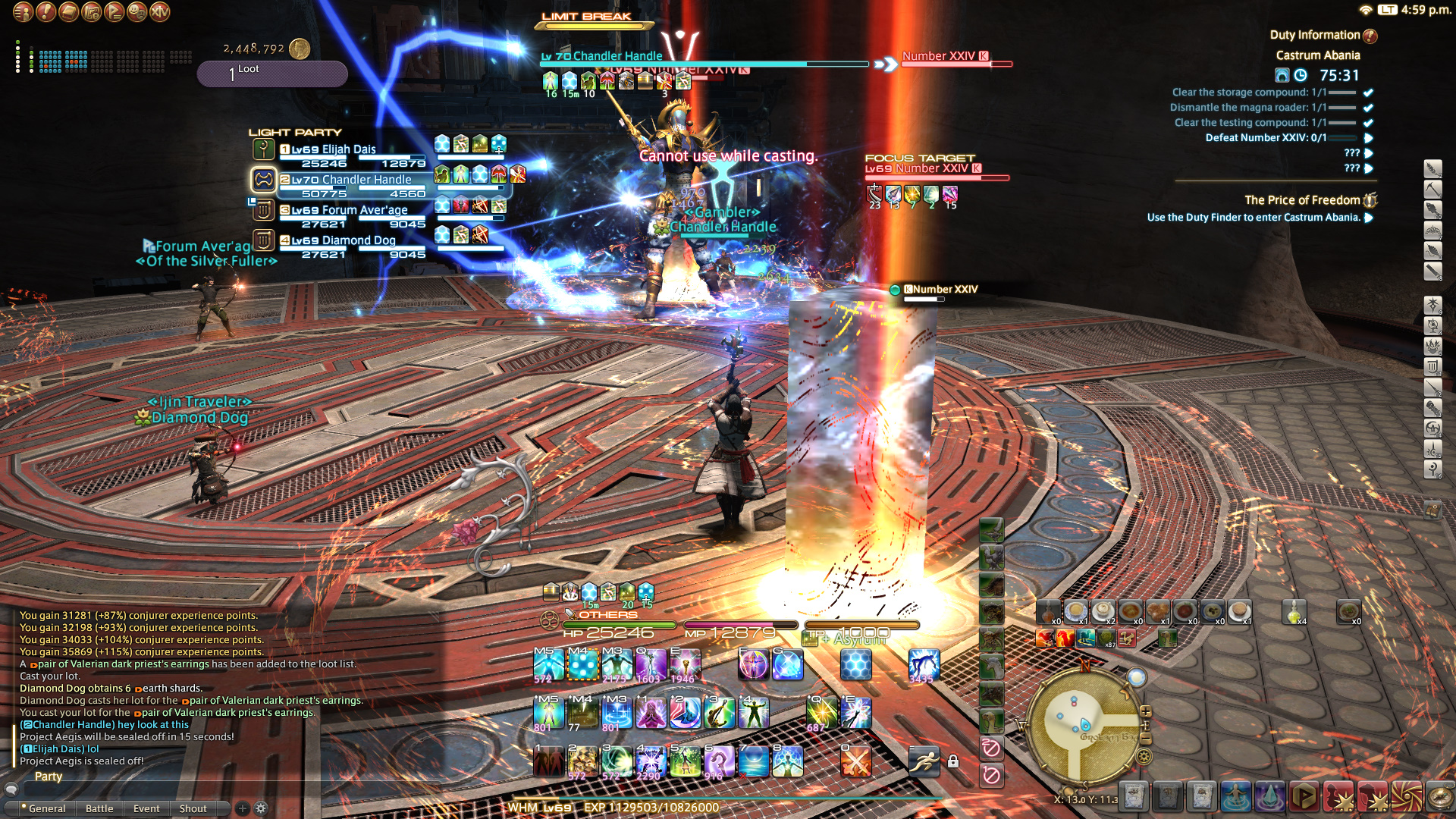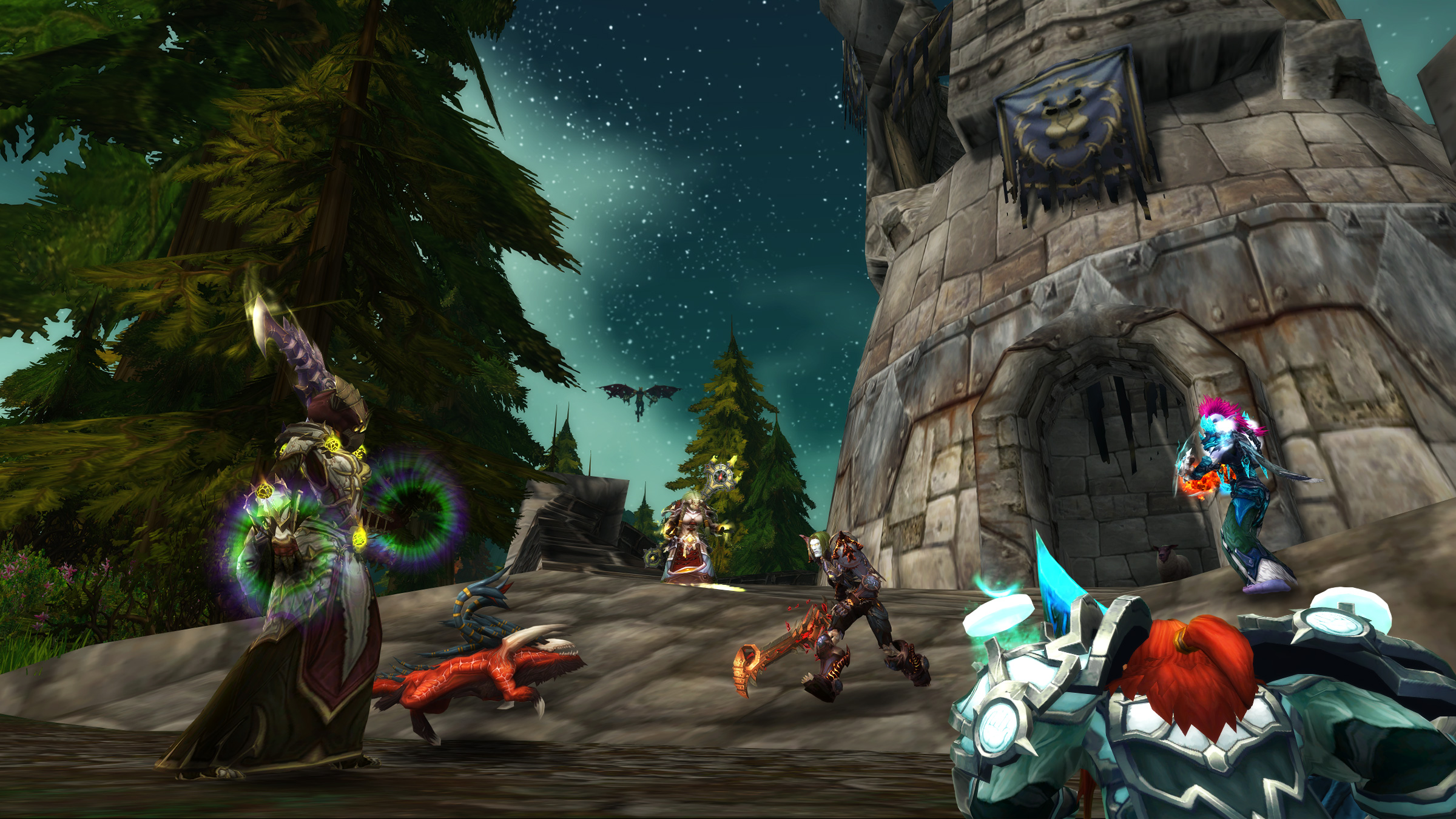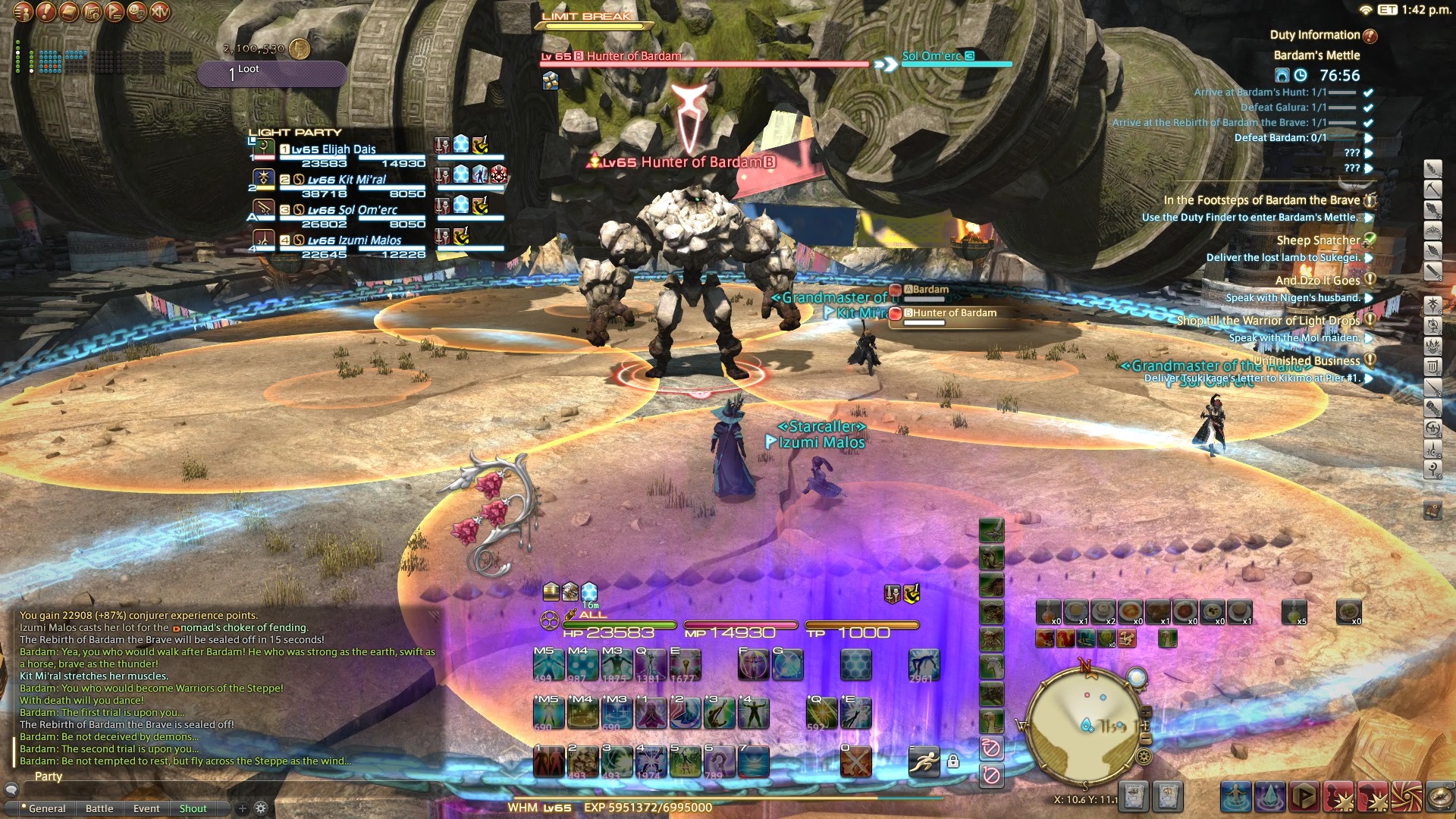If you want to love MMOs again, stop playing them so damn often
How I learned to stop worrying and love the grind.

I love MMOs. And because I love them so much, I often end up hating them. The past 12 months has been an incredible year for the genre. World of Warcraft: Legion and Final Fantasy 14: Stormblood are both excellent expansions to already great games—and then there’s promising releases like Albion Online and and The Secret World: Legends. It should be a great time for someone like me whose idea of a fun night is a bag of Doritos and a raid to conquer. But following my review of Stormblood, I stuck around to check out the new raid and haven’t played since.
It’s not because Stormblood sucks—it’s one of the best MMOs I’ve played in years. I’m not playing because over this past year I’ve realized that my relationship with MMOs often sours because I feel like I constantly have to play them. It’s the only genre that I play out of a sense of duty rather than a desire to have fun (though the two aren’t mutually exclusive). But to hell with duty.
Grinding my gears
The design of modern MMOs is almost entirely centered around their endgames—the endless cycle of beating raids and dungeons again and again for marginally better rewards. In Final Fantasy 14: Stormblood, for example, once players reach level 70 they can begin tackling a new set of dungeons and the ultra-complex Primal boss fights in exchange for rewards such as better gear. As I said in the review, these fights are among some of the finest crafted boss battles I’ve seen. But in the context of Final Fantasy 14’s endgame grind, you’re expected to run these fights dozens of times in order to earn currencies that net you upgrades to your gear. Daily quests and bonuses encourage you to spend a few hours every night playing.
It’s an extension of daily quest systems that have proliferated into games of all genres, from Diablo 3 to Spelunky. But in MMOs, it’s largely used as a way to entice you to, at the very least, spend an hour or two every day running the same dungeons or raids again and again. And, unique to MMOs, it’s hinged on the Fear of Missing Out.

If you’ve ever stayed late at a party even though you have to work early and should be in bed, you’re already well acquainted with the Fear of Missing Out (FOMO). It’s the idea that others might be having rewarding experiences while you’re away, so you sure as hell better join them and not miss out. In MMOs, it fuels my compulsion to keep logging in day after day. If I’m not grinding dungeons and getting the currencies I need to upgrade my gear, I’m going to fall behind my friends and other players. And if I fall behind now, that means I might never obtain some of the valuable rewards a more dedicated player will earn. Rideable special mounts, sexy new armor, and the abstract illusion of power—MMOs are exceptionally good at enticing you to keep playing.
Rideable special mounts, sexy new armor, and the abstract illusion of power—MMOs are exceptionally good at enticing you to keep playing.
In Legion, World of Warcraft’s latest expansion, that feeling of FOMO is far more aggressive than in any MMO I’ve played in years. One of most original features of the expansion is artifact weapons that power up and grow alongside your character. It’s a great system that I still enjoy, but if you’re not constantly grinding artifact power, you’re going to fall seriously behind. You can have powerful armor, but if your artifact weapon is underpowered you’re sure as hell going to struggle to keep up with your party during a dungeon. And if they’re using addons like a DPS log, they’re going to notice it too.
It’s a symptom of the genre still being hostage to the subscription fee and the idea that if players don’t have things to do, they’re going to leave and never come back. But that places many MMOs (especially those with subscriptions) in a compromising position because, after 20 years, not a single one has ever been able to release new content at the same rate in which players devour it. Instead of creating more dynamic sandbox-esque systems, like Elder Scrolls Online’s three-way PvP siege mode or EVE Online’s sprawling player-driven economy and sovereignty system, most MMOs try to stretch their dungeons and raids over a grind that rewards persistence in the face of repetition.
The biggest gaming news, reviews and hardware deals
Keep up to date with the most important stories and the best deals, as picked by the PC Gamer team.
It’s one of the many problems that has haunted the genre since Everquest and World of Warcraft laid the foundation for the modern MMO. And since it’s a problem that smarter minds than mine have been trying to solve for a very long time, I’ve decided on a much simpler solution: I’m going to stop buckling under the pressure to keep playing because I feel like I have to.

Jumping off the bandwagon
I’m a casual, and I love it.
I’ve stopped giving a shit about fancy mounts or powerful gear, and I’ve never loved MMOs more. Stepping back from their grind has given me more room to appreciate why this genre is special. Instead of being laser-focused on progressing, having the best gear or the coolest mounts, I’ve started focusing more on exploring new ways of playing or meeting people and socializing. It’s reminded that MMOs used to be about immersing yourself in a virtual world, not losing your cool because the DPS is incapable of dodging the bosses’ AoE attacks.
On a larger scale, it also means that I haven’t burned out on recent MMOs like many of my friends have. Instead, I play when I feel like it, and even if I fall behind it doesn’t matter—I can always catch up later. The rewards and the sense of power are illusions, and everything is subject to change. Eventually, an update will release that makes them all pointless anyway. Playing this way has kept me interested in this year’s MMOs far longer than I ever would have been in the past.

Because I don’t feel beholden to one, I’m free to jump around from Stormblood to Legion to Albion Online and not feel like I’m being left behind. And when a new update launches, like the upcoming 7.3 patch for Legion, I’m eager to jump back in for a few weeks until I feel the grind beginning to set in and then I’ll move on. When I am playing, I’m far more focused on doing group activities with my own guild or helping other players out instead of grinding dungeons with strangers. My gear isn’t top-notch, I don’t have fancy mounts, and sometimes I struggle to keep up with my party.
I’m a casual, and I love it.
If you’re feeling cynical about the genre or where it’s headed, maybe you also should step back and stop caring. I love that MMOs can inspire such dedication that the genre’s flaws can be felt so keenly, but, after all, they’re just games. Riding around on a glowing dragon with max-level armor is cool, but if getting all of that means bashing your head against a grind that saps all the fun out of the game, is it really worth it?
Join me in the casual kiddy pool. The water’s great.
With over 7 years of experience with in-depth feature reporting, Steven's mission is to chronicle the fascinating ways that games intersect our lives. Whether it's colossal in-game wars in an MMO, or long-haul truckers who turn to games to protect them from the loneliness of the open road, Steven tries to unearth PC gaming's greatest untold stories. His love of PC gaming started extremely early. Without money to spend, he spent an entire day watching the progress bar on a 25mb download of the Heroes of Might and Magic 2 demo that he then played for at least a hundred hours. It was a good demo.


